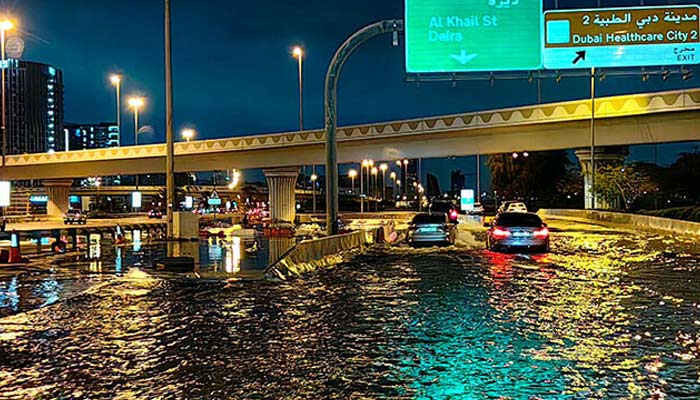Following intense rains that covered the region in less than a day, the city of Dubai has almost come to a complete standstill.
Due to subterranean parking lots flooding, schools have been closed and staff members have been told to work from home. Following two days of rain, there were also problems with the metro services. Moreover, one of the biggest airports in the world, Dubai International, is experiencing major delays, with planes being delayed or diverted for many hours.
Numerous media sources linked Dubai’s routine cloud seeding operations to the flooding in order to meet its freshwater needs.
This method involves using aeroplanes to boost precipitation by introducing chemicals and tiny particles, like potassium chloride salts, into rain clouds, according to Interesting Engineering.
But it is not solely the case, as Omar AlYazeedi, deputy director general of the NCM told CNBC that there were no seeding operations before or during the storm.
Although it is simple to draw connections between the two events and attribute the floods to the seeding efforts, a closer examination of the facts reveals a different picture.
In Dubai, cloud seeding is nothing new. According to the Bloomberg report, the technology has been in use since 2002, but in the preceding two decades, no such catastrophic results have been observed.
Given that over 300 seeding operations are carried out in Dubai annually, one may be positive that this time around the tests have gone well. Furthermore, the NCM made it clear that on the day of the storm, it did not perform any cloud seeding.
Dubai was not designed to withstand such enormous rains. Storm water drains are not constructed by a desert community hoping to augment its freshwater supply during heavy downpours.
Due to climate change, major cities frequently flood during periods of heavy rain, so, this time around, it was Dubai.
This serves as yet another warning that the changing climate and its effects on the natural and human environments must be taken into consideration when designing urban infrastructure.




